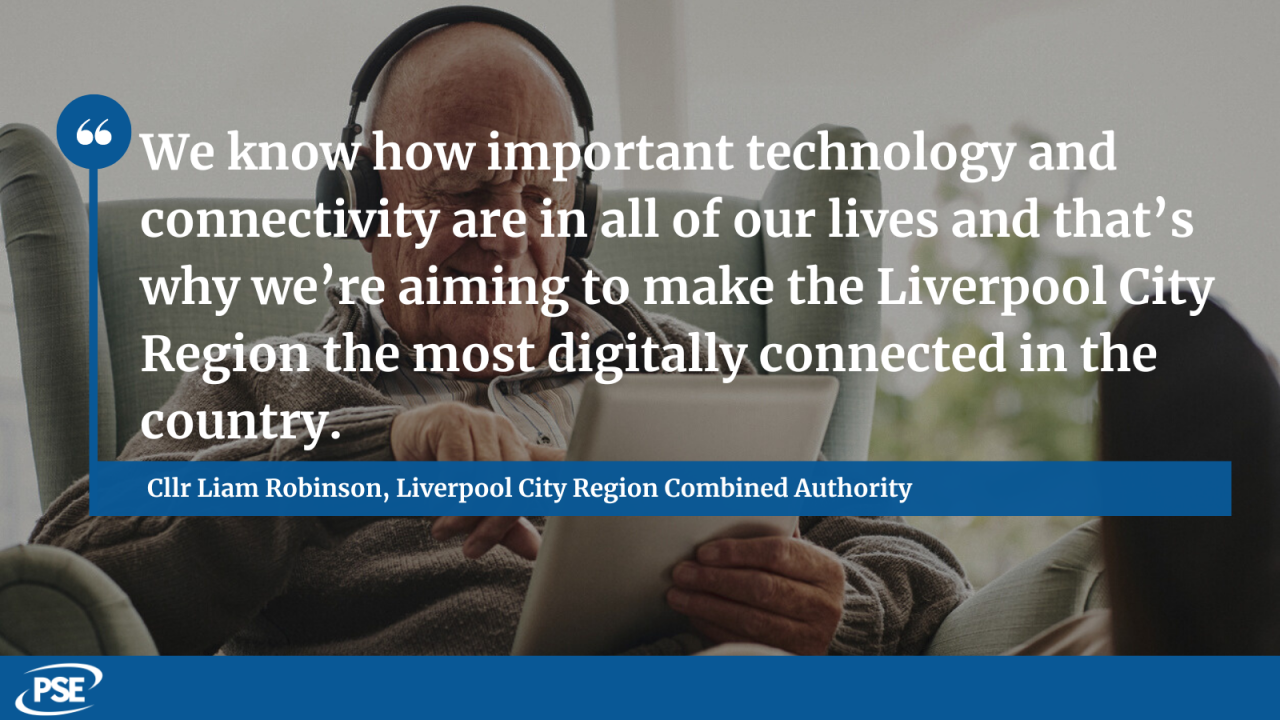The final phase of a pioneering new digital inclusion programme is being ramped up by Liverpool City Region Combined Authority.
So far, almost 1,500 people have been supported by the scheme, with that number expected to increase to more than 4,500 people by the end of the year. The Digital Inclusion Initiative works to get more people get online by giving participants a free tablet, which is then accompanied by in-person skills training and six months of free connectivity.
This work comes as the combined authority has partnered with leaders from across the digital world to meet its targets of bridging the digital divide, and improving digital skills so that people’s lives can be enhanced. By bringing more people online, economic growth can also be stimulated further around the country.
The programme began with a pilot that saw 300 local people who were unemployed or economically inactive being given tablets and training, with this then leading to significant growth within the scheme. Financial backing, logistical resources, and expertise are being provided by supporting organisations, whilst a further 65 local partners are supporting the further rollout of the programme across the city region’s Digital Inclusion Network.

Cabinet Member for Innovation Cllr Liam Robinson said:
“We know how important technology and connectivity are in all of our lives and that’s why we’re aiming to make the Liverpool City Region the most digitally connected in the country.
“However, there are still too many people who are digitally excluded and unable to navigate their way through today’s digital world, missing out on access to essential services, job opportunities and keeping in touch with family and friends.
“That’s why we’re supporting schemes like this to help prevent anyone in our region being left behind. We want a better-connected future for everyone and this initiative is playing a vital part in that mission.”
Issues such as deprivation and labour market status are closely linked to digital exclusion, with this issue then being further compounded by challenges such as the cost of living crisis and economic contraction. According to the combined authority, more than a third of neighbourhoods in Liverpool City Region are in the top 10% most deprived nationally – which is a significantly higher number than other combined authorities.
This has a major impact on services ranging from education and income, to housing and health, whilst digital exclusion commonly crosses over these issues. In order to ensure that communities can benefit from further equality, economic growth, and empowerment, it is essential that local government is able to drive digital inclusion – with benefits such as education, employment, healthcare, and government services becoming increasingly available online.
Image credit: iStock



















